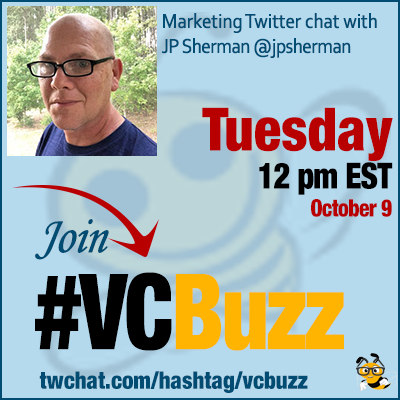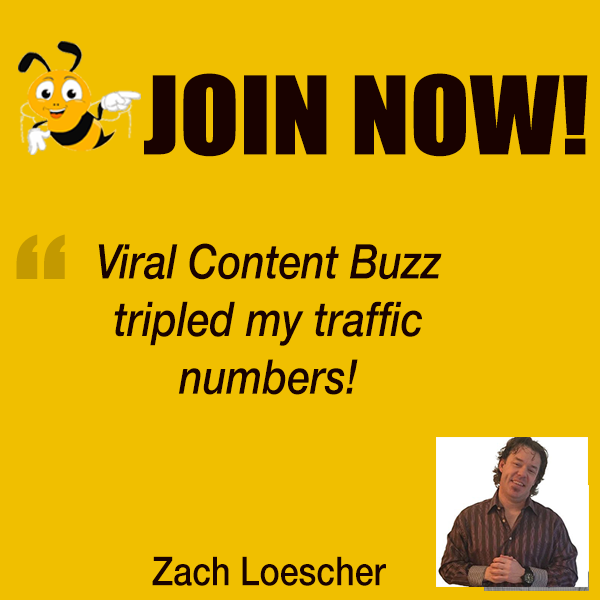 There are certain aspects of digital marketing we’ve been talking about for ages, yet they have become a “trend” only recently. One of such concepts is “search intent”
There are certain aspects of digital marketing we’ve been talking about for ages, yet they have become a “trend” only recently. One of such concepts is “search intent”
We’ve known for ages that search intent is important because we want to match a page content to the user’s desired action. But somehow it’s only recently that we’ve started taking it seriously.
Why so? Let’s discuss!
***Add #VCBuzz chats to your calendar here.
***Please sign in here to follow the chat -> twchat.com/hashtag/vcbuzz
About JP Sherman
John Paul (JP) Sherman is a fifteen year veteran of Search, Findability and Competitive Intelligence. As the Search & Findability Manager for the @RedHat Customer Portal, he bridges the intention gap between tens of thousands of technical and support documents and the customers looking for them in Google and Red Hat’s internal search platform.
Connect to John Paul (JP) Sherman in Linkedin
Questions we discussed
Q1 How did you become a digital marketer? Please share your career story!
So, I’ll start this off – i was US Army PSYOP where I did ops like malaria prevention * information dissemination was critical – that’s where I learned how to blend messages & tech to reach people.
I then went to college focusing on evolutionary biology – behavioral science fascinated me so i took that education & translated it into the digital space.
Happened there by accident, but never did anything else in my life, so far… RT @jpsherman: A1: would love to hear your stories – did you go direct into search or marketing? #vcbuzz
— Ann Smarty (@seosmarty) October 9, 2018
Q2 What is search intent and what does it have to do with SEO? What are different types of search intent?
I view search intent as matching the acceptance vs. rejection criteria in a user’s mind to the search results – with the result being a pience of content being consumed and an action (conversion) taking place.
I view search intent as matching the acceptance vs. rejection criteria in a user’s mind to the search results – with the result being a pience of content being consumed and an action (conversion) taking place.
A2 No more keyword strings please! There are people behind those queries #vcbuzz
— Ann Smarty (@seosmarty) October 9, 2018
A fun thing about search intent is that it’s rarely a single phrase, looking at keyword data from google or sitesearch can reveal different ways people look for the same thing.
For example, sometimes intent has NOTHING to do with the words – a search for “bike tires” in LA could mean road bike tires, in CO Springs, could mean mountain bike tires – sometimes location is a signal of intent.
Don't throw the baby out with the bath water. #vcbuzz
— Don Sturgill (@DonSturgill) October 9, 2018
So when you look at groups of queries how can it help w/ SEO? it can create more information about how to craft content around a central topic – enhancing your expertise.
Personal search history is a factor as well … giving us great joy for targeting. #vcbuzz
— Don Sturgill (@DonSturgill) October 9, 2018
I put geo-location as a signal in our site search engine to recognize locational data #vcbuzz
— JP Sherman 🦇 (@jpsherman) October 9, 2018
Q3 How to identify a search intent of a particular search query?
Some queries are clear – these are your “high intent, low volume” queries – like “stream The Clash” the intent is clear. but a query like “shoes” is less clear – more info needed.
that really depends, but i first identify the type of query (high intent/ low volume or low intent/ high volume) – for the low intent queries i look at pageviews, conversions to feed a content pipeline to build on the topical expertise #vcbuzz
— JP Sherman 🦇 (@jpsherman) October 9, 2018
When you recognize your “low intent, high volume” queries, that’s where it gets challenging – Google provides things like “did you mean” or “people also searched for” to clarify a searcher’s intent.
There’s also disambiguation – the query “Halo” could mean a video game, a GI Joe character, a Beyonce song, a type of galaxy or an angel – a good way to handle that is through click through data and/ or sitesearch UI/UX improvements.
Q4 How to optimize your content and landing pages to better match search intent? How to identify landing pages that are currently not doing a good job giving users what they came for?
I see more evidence that the direct query to landing page strategy is working less with Google’s E.A.T. philosophy (expertise, authority, trust) & I focus on internal linking of content to create topical hubs that show breadth of knowledge.
I look at topical gaps of knowledge in my site – add that to content creation pipeline – while making sure my internal linking is strong & my structured markup (schema.org) is sending right signals to Google.
since i work for a technology company, I use https://t.co/bx0beb3082 the Tech Article schema a LOT – as well as software application https://t.co/oXHh5bUsUg – schema can be flexible & is a strong signal to google #vcbuzz
— JP Sherman 🦇 (@jpsherman) October 9, 2018
The number of schema Google supports is always increasing, plus other engines support them too – you will never hurt your site by having good structured markup 🙂 #vcbuzz also, schema’s not a direct ranking signal, but an indicator of entity recognition.
When it comes to measuring the efficacy – conversions are king. however, for knowledge sites measuring if a user read it can be tricky. i generally look at time on page & sitesearch “back clicks” to signal poor performance.
A4. I use "Go, Know, Do" 2 help guide my content creation. Those are the 3 types of intent. Go somewhere, know something, do something. #vcbuzz
— Kristin Huntley (@seekristintweet) October 9, 2018
I haven’t heard that strategy before, but that makes a LOT of sense… Thank you Kristin!
Q5 What are your favorite keyword research tools?
Keyword research tools i love using:
- semrushchat
- moz
- answer the public
- sitesearch keyword data
if you have time to manually search for things Google's 'More like this" or "people also search for" features can guide you into behavioral patterns that don't include the actual words in the query #vcbuzz
— JP Sherman 🦇 (@jpsherman) October 9, 2018
Our previous SEO chats:
- SEO Coaching and Findability Principles with Heather Lutze @HeatherLutze
- Domains and SEO: Myths and Tips with Bill Hartzer @bhartzer
- Marketing Twitter Chat with International SEO Consultant Aleyda Solis @aleyda
- Essential Steps of an SEO Audit with @MattLacuesta
- SEO Then and SEO Now with Bonnie Burns @Burnsie_SEO




Leave a Reply